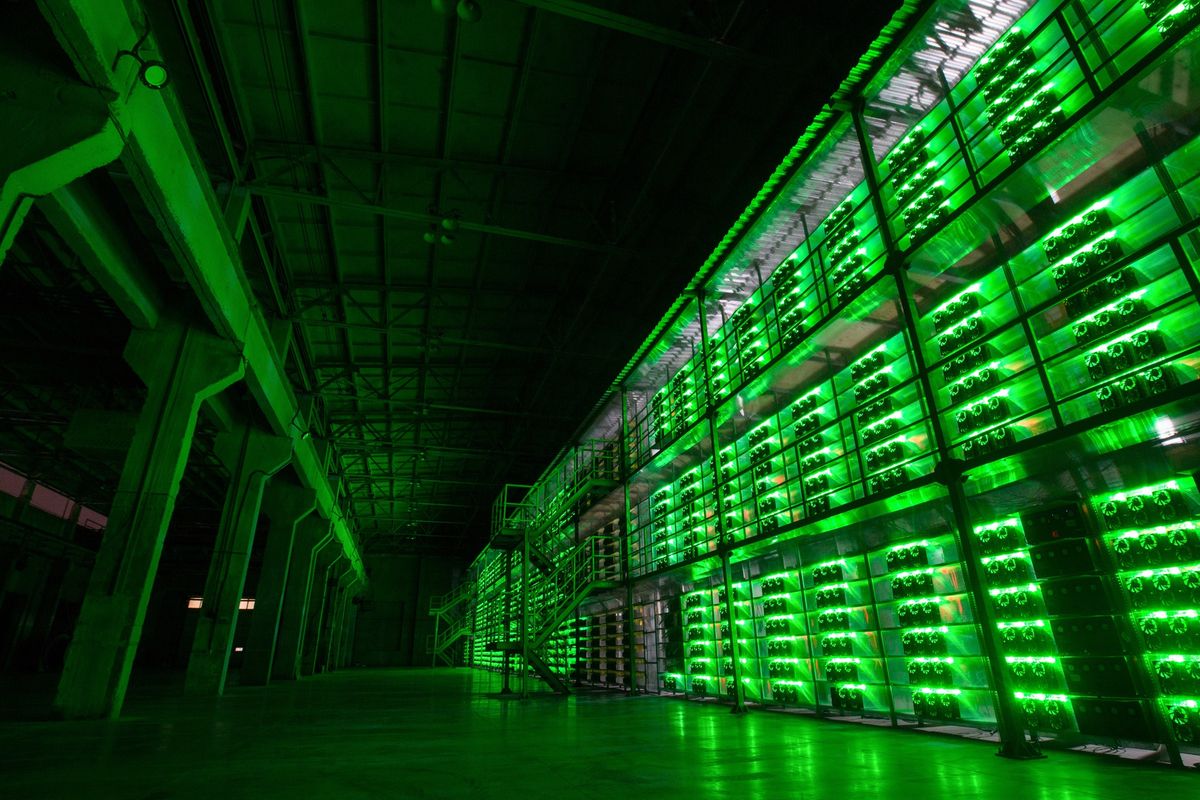U.S. Bitcoin Mining Sector Set for Expansion Amid New Innovations
30.07.2024 19:00 1 min. read Alexander Stefanov
The Bitcoin mining industry is projected to grow to $20 billion over the next five years, driven by advancements in technology and evolving market dynamics.
Historically dominated by Chinese firms like Bitmain, the market is seeing new developments from U.S.-based companies. Notably, Block, co-founded by Jack Dorsey, has secured a $300 million deal with Core Scientific to supply cutting-edge 3-nanometer ASIC mining chips, enhancing mining efficiency.
Auradine, backed by MARA, is also making waves with its new mining chips, including the AT1500 Teraflux and upcoming AT2880 models. The company raised $80 million in a recent funding round and aims to boost mining efficiency with its advanced technology.
Analysts anticipate a 15-30% increase in demand for mining equipment due to rising network activity and the need to upgrade existing systems, potentially generating $3-5 billion in annual hardware revenue.
This growth is further supported by political moves, such as Donald Trump’s push for expanded U.S. Bitcoin mining capabilities and improved energy infrastructure.
These shifts in the U.S. market could reduce reliance on traditional players like Bitmain and foster innovation. Bernstein analysts view this as a significant opportunity for U.S. miners and predict improved efficiency and reduced capital expenditures as new technologies become available.
-
1
Here’s Why Bitcoin Could Be Gearing Up for Its Next Move Despite the Pullback
09.06.2025 8:00 2 min. read -
2
Japan’s Metaplanet Aims for 1% of All Bitcoin with Bold Market Move
06.06.2025 19:00 1 min. read -
3
BlackRock and Fidelity Pour Over $500M Into Bitcoin in One Day
25.06.2025 21:00 1 min. read -
4
Blockchain Group Bets Big on Bitcoin With Bold €300M Equity Deal
09.06.2025 22:00 2 min. read -
5
Bitcoin to Track Global Economy, Not Dollars, Says Crypto Expert
09.06.2025 18:00 2 min. read
History Shows War Panic Selling Hurts Crypto Traders
Geopolitical conflict rattles markets, but history shows panic selling crypto in response is usually the wrong move.
At Least Five Law Firms Target Former Strategy Over Misleading BTC Risk Disclosures
Bitcoin-focused investment firm Strategy Inc. (formerly MicroStrategy) is facing mounting legal pressure as at least five law firms have filed class-action lawsuits over the company’s $6 billion in unrealized Bitcoin losses.
Bitcoin Hashrate Declines 3.5%, But Miners Hold Firm Amid Market Weakness
Bitcoin’s network hashrate has fallen 3.5% since mid-June, marking the sharpest decline in computing power since July 2024.
Bitcoin Surpasses Alphabet (Google) to Become 6th Most Valuable Asset Globally
Bitcoin has officially overtaken Alphabet (Google’s parent company) in global asset rankings, becoming the sixth most valuable asset in the world, according to the latest real-time market data.
-
1
Here’s Why Bitcoin Could Be Gearing Up for Its Next Move Despite the Pullback
09.06.2025 8:00 2 min. read -
2
Japan’s Metaplanet Aims for 1% of All Bitcoin with Bold Market Move
06.06.2025 19:00 1 min. read -
3
BlackRock and Fidelity Pour Over $500M Into Bitcoin in One Day
25.06.2025 21:00 1 min. read -
4
Blockchain Group Bets Big on Bitcoin With Bold €300M Equity Deal
09.06.2025 22:00 2 min. read -
5
Bitcoin to Track Global Economy, Not Dollars, Says Crypto Expert
09.06.2025 18:00 2 min. read


